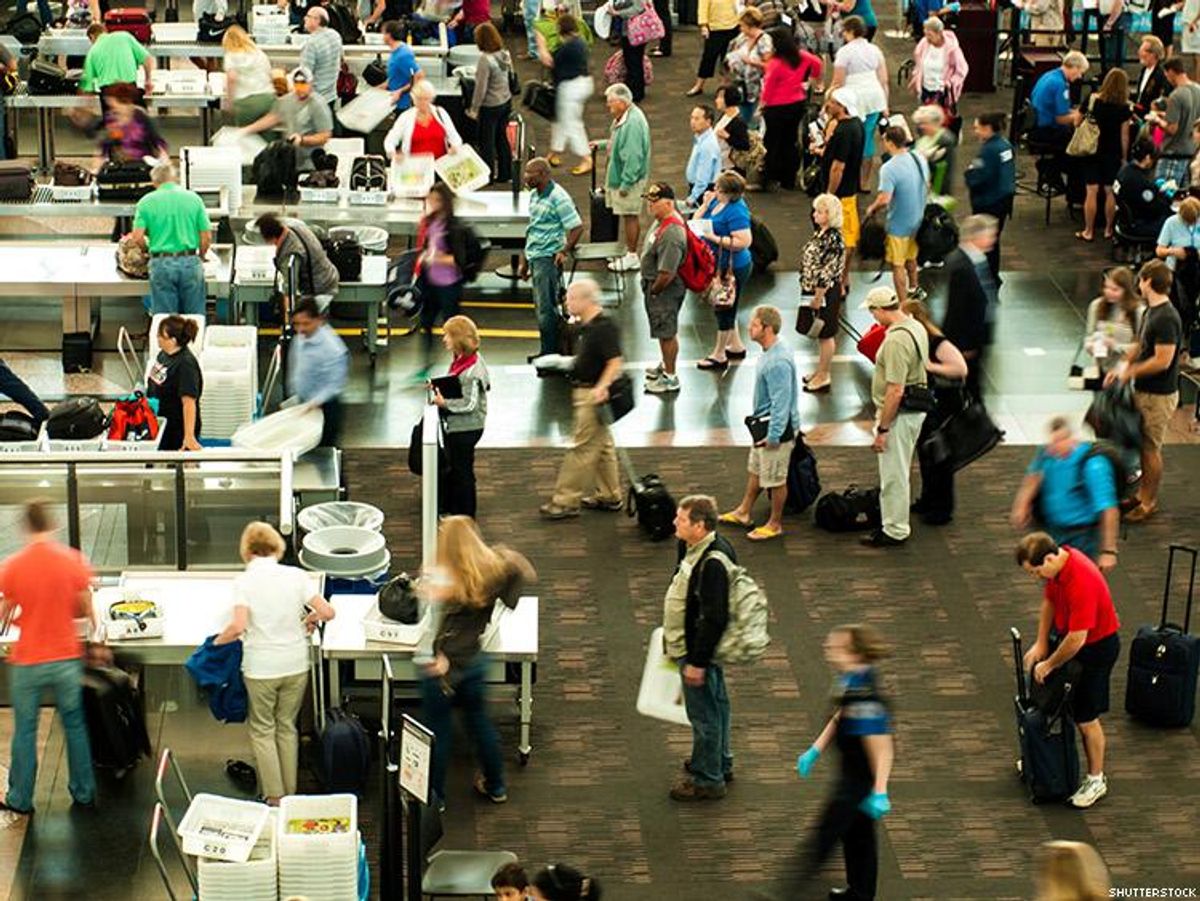As the year draws to a close, more than 100 million people across America will find ourselves traveling to visit friends and family over the holiday season. For those choosing to fly, traveling can be at best exciting, and at worst inconvenient or unpleasant. But for many transgender people, air travel is far too often a humiliating nightmare.
When Shadi Petosky tried to board a plane at the Orlando airport this past September, she found herself delayed and detained by Transportation Security Administration agents, after the millimeter wave body scanners used for airport security detected what the TSA considered an "anomaly" in her groin area. Petosky live-tweeted what happened next, including being held for nearly an hour, subjected to humiliating pat-downs, and eventually being removed from the airport, subsequently missing her flight.
Petosky's experience (which she says occurred again recently at the San Juan airport) is nowhere near the exception to the rule. For too many trans people, it is a routine and constant experience to have their bodies treated as anomalies -- simply for traveling while trans.
Last week, TSA announced that it will no longer consider transgender people's bodies "anomalies," but instead will use the term "alarm" when a body scanner returns an image that does not fit within its binary and therefore requires additional screening.
While TSA insists that this new policy is an improvement, the reality is that considering transgender people as "alarms" is no better than calling them anomalies. This new term used to refer to transgender people is far from providing transgender people with the dignity, respect, and safety every airport traveler deserves.
The National LGBTQ Task Force, along with our community partners, has met with TSA and pushed for necessary and adequate improvements to their policies relating to transgender people. We have pushed for trans-sensitive policies that protect transgender people from dehumanizing and humiliating treatment solely because of who they are.
Among the changes we are pushing for is an improvement in scanning technologies, so that TSA checkpoints utilize machines that can actually distinguish between body parts and foreign objects -- which the current full-body scanners cannot do. By adopting scanning technology that is universal and accurate in identifying foreign objects, TSA would transform its current, rather puzzling process, which requires an agent to choose a pink (female) or blue (male) button based on the agent's perception of the traveler's gender. Scanners that can tell the difference between flesh and a foreign object, for example, would help eliminate the singling-out and unnecessary pat-downs of transgender people.
While we understand implementing the scanning technology update may take some time and more investment in much-needed innovation, in the meantime, TSA needs to develop transgender-inclusive and sensitive policies that don't subject transgender people to further invasions of privacy and humiliation by being outed (which places them at risk of further discriminatory treatment), and groin area pat-downs.
TSA can and must do more to ensure the dignity, safety, and respect of each traveler, including transgender people. Its current policies are dehumanizing, denigrating and deprive transgender people of fair treatment. What is needed from TSA is actual action, not merely superficial changes in vocabulary.
 REA CAREY is the executive director of the National LGBTQ Task Force.
REA CAREY is the executive director of the National LGBTQ Task Force.
































 REA CAREY is the executive director of the National LGBTQ Task Force.
REA CAREY is the executive director of the National LGBTQ Task Force.
















































